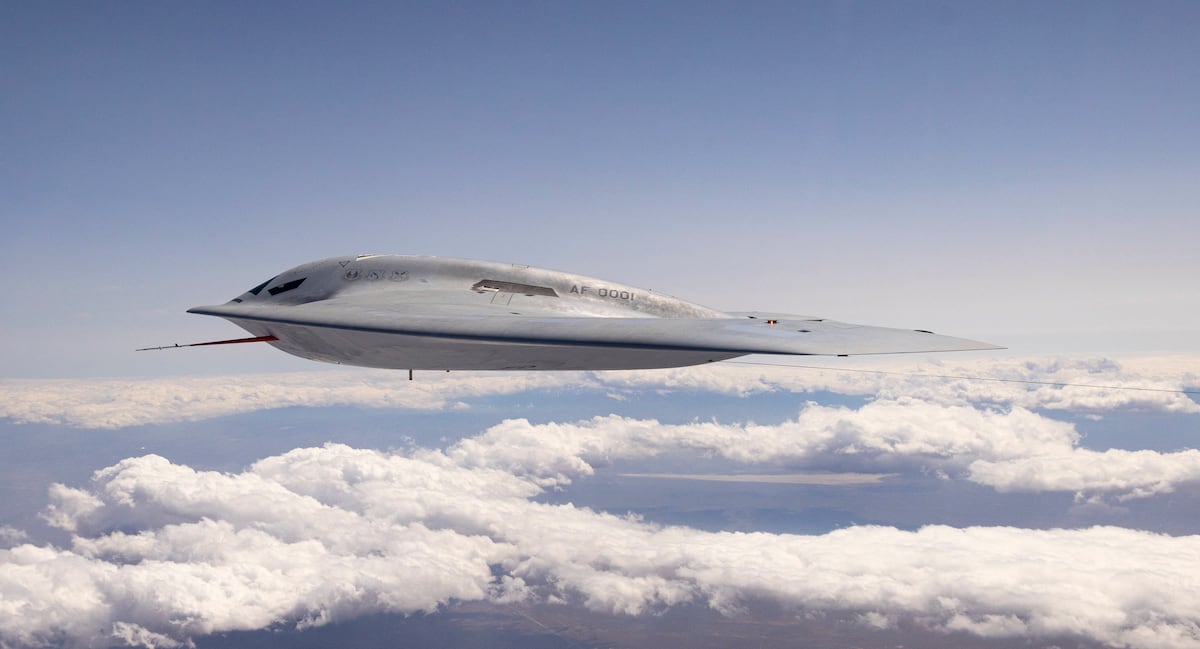The Air Force is likely to award Northrop Grumman a second low-rate initial production contract to build the B-21 Raider by the end of the year, company officials said Thursday.
In an earnings call with investors, Northrop chief executive Kathy Warden said ground and flight testing of the Air Force’s next stealth bomber is on track, and work on the first production B-21s is proceeding as planned.
The Pentagon cleared the B-21 for its first phase of production in fall 2023. Northrop expects follow-on annual LRIP awards, Warden said, “and this is the time of year when that happens.”
The B-21 — which Northrop Grumman has touted as the world’s first sixth-generation aircraft due to its improved stealth, use of open systems architecture and advanced data sharing capabilities — is expected to enter service later this decade, and will replace the aging B-1 Lancer and B-2 Spirit bombers sometime in the 2030s.
The Air Force plans to field a fleet of at least 100 B-21s.
And as the service rethinks its overall approach to fighting a future air war, it could become clear whether more B-21s are in the cards, Warden said.
The Air Force this summer balked at potentially severe price tags for its proposed Next Generation Air Dominance platform, and began reconsidering what mix of air dominance assets it needs to fight and win a war against an advanced adversary.
As that force structure review wraps up in the next few months, Northrop Grumman may get a better picture on how many B-21s the Air Force will likely buy, Warden said.
Northrop expects volume on the B-21′s low-rate initial production to increase in the fourth quarter, which will help drive the company’s sales.
But the B-21′s financial road has been rocky so far for Northrop. In the fourth quarter of 2023, Northrop reported a nearly $1.6 billion charge on the B-21, which the company attributed to rising production costs and macroeconomic disruptions.
Northrop officials have also cautioned investors that the bomber will lose money at first, though the company expects that to turn around.
Warden told investors that Northrop is able to absorb those early headwinds on the B-21.
“While the B-21 is a key program in our company, it is not the majority of [aeronautics] sales,” Warden said.
The B-21 team is taking steps to bring down cost and improve productivity, Warden added, including refining training methods to quickly bring new factory employees up to speed. That new training has also benefited other, more mature Northrop programs, she said.
The B-21′s LRIP phase is expected to include five lots, and will run roughly through the end of the decade.
Stephen Losey is the air warfare reporter for Defense News. He previously covered leadership and personnel issues at Air Force Times, and the Pentagon, special operations and air warfare at Military.com. He has traveled to the Middle East to cover U.S. Air Force operations.
Read the full article here


